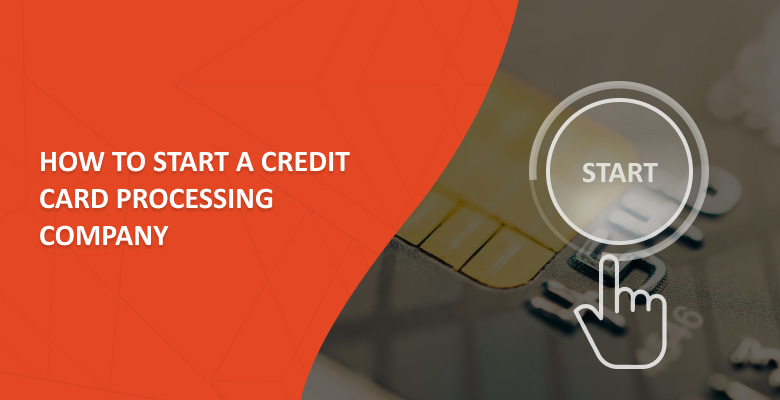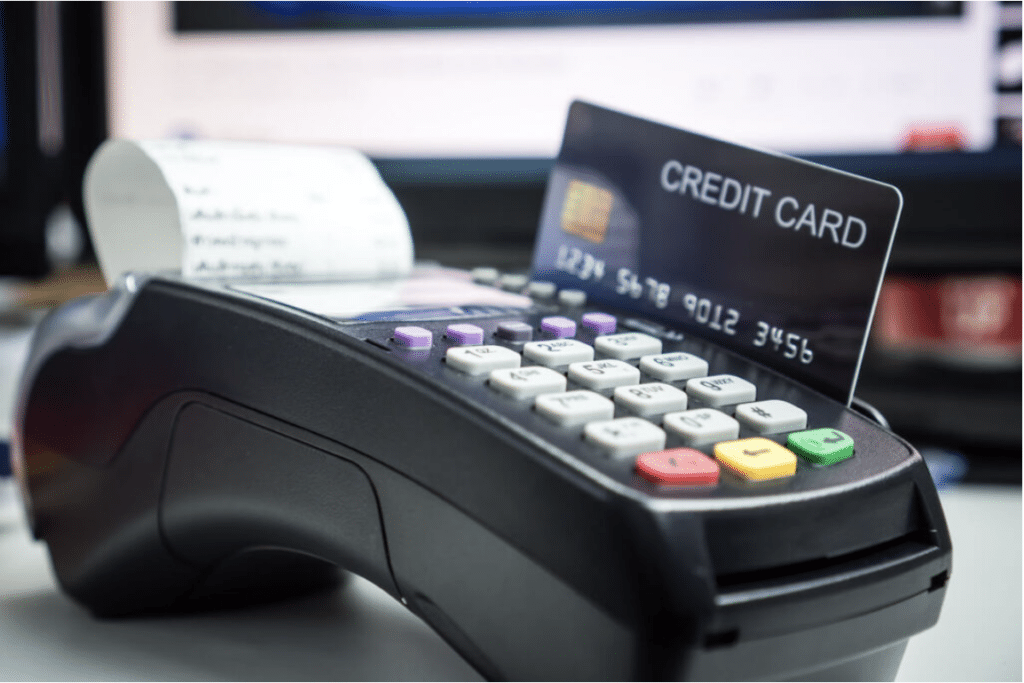To become a credit card processor, you need to follow these steps: understand the industry, obtain necessary licenses and registrations, partner with a payment processor, and market your services to potential clients. Starting a career as a credit card processor can be a lucrative choice, as businesses today rely heavily on electronic payments.
As consumers increasingly prefer using credit and debit cards for convenience and security, the demand for credit card processing services continues to grow. By becoming a credit card processor, you can play a vital role in helping businesses accept payments, manage transactions, and facilitate financial transactions securely.
We will guide you through the process of becoming a successful credit card processor.
H2: Understanding the Role of a Credit Card Processor
For businesses in today’s digital age, accepting credit and debit card payments is essential. To facilitate this process, credit card processors play a crucial role. These individuals or organizations enable businesses to accept and process electronic payments securely and efficiently. Understanding the role of a credit card processor is vital for anyone looking to enter this field. In this section, we will delve into the definition of a credit card processor, highlight the importance of credit card processing, and explore the necessary skills and qualifications required to become a credit card processor.
What is a Credit Card Processor?
A credit card processor acts as an intermediary between a merchant (business) and the cardholder’s issuing bank. When a customer makes a purchase using a credit or debit card, the credit card processor facilitates the transaction by authorizing and capturing funds from the customer’s account. They securely transmit the transaction details to the relevant financial institutions, ensuring that the necessary funds are transferred from the customer’s account to the merchant’s account.
Importance of Credit Card Processing
Credit card processing is vital for businesses of all sizes in today’s digital marketplace. Here are some key reasons why credit card processing is crucial:
- Increased Sales: Accepting credit cards opens up new avenues for customer payment, resulting in increased sales volume. Customers are more likely to make a purchase if they have the convenience of paying by card.
- Enhanced Customer Satisfaction: Credit card processing allows for quick and seamless transactions, improving the overall customer experience. Customers appreciate the convenience and flexibility of paying with a card.
- Security: Credit card processors employ encryption and other security measures to protect sensitive customer information, reducing the risk of fraud and data breaches.
- Streamlined Operations: Credit card processing automates payment processes, eliminating the need for manual handling of cash, checks, and invoices. This streamlines operations and reduces the risk of human error.
Skills and Qualifications Required
While the specific requirements may vary depending on the employer, there are several skills and qualifications commonly sought after for a career in credit card processing:
- Knowledge of Payment Processing Systems: Familiarity with popular payment processing systems, such as Square, PayPal, or Stripe, is essential. Understand the features and functionalities of these systems to effectively process transactions.
- Attention to Detail: Credit card processors must be meticulous when reviewing transaction details and ensuring accuracy throughout the processing cycle.
- Customer Service Skills: Good communication and customer service skills are essential, as credit card processors often interact with merchants and cardholders to resolve any issues or discrepancies.
- Technical Aptitude: Basic knowledge of computer systems, software applications, and data security protocols is crucial for managing and troubleshooting credit card processing systems.
- Analytical Thinking: Credit card processors should have the ability to analyze transaction data and identify potential anomalies or fraudulent activities.
By possessing these skills and qualifications, individuals can lay a strong foundation for a successful career as a credit card processor.

Credit: pay.com
H2: Steps to Becoming a Credit Card Processor
Are you interested in becoming a credit card processor? This is a lucrative career path with plenty of growth opportunities. In this guide, we will walk you through the steps to becoming a credit card processor and set you up for success in this ever-evolving industry.
Research the Industry and Market
Before embarking on your journey to become a credit card processor, it is crucial to conduct thorough research on the industry and market. Understanding the ins and outs of the payment processing landscape will give you a competitive edge and help you make informed decisions.
Consider the following points as you delve into your research:
- Stay updated with the latest trends and technologies in payment processing.
- Analyze the demand and potential growth of the credit card processing industry.
- Identify the key players and competitors in the market.
- Study consumer behaviors and preferences related to payment methods.
Gain Knowledge and Understanding of Payment Processing
As a credit card processor, having a strong foundation in payment processing is essential. Familiarize yourself with the concepts and functionalities involved in this field to ensure you can confidently navigate through the intricacies of the job.
To gain knowledge and understanding of payment processing, consider the following steps:
- Study the different types of payment systems such as Point-of-Sale (POS), mobile payments, and e-commerce platforms.
- Learn about the various stages of transaction processing, including authorization, settlement, and funding.
- Understand the security measures and protocols involved in keeping sensitive financial information safe.
- Stay updated with the regulatory requirements and compliance standards in the payment processing industry.
Obtain the Required Certifications and Licenses
To become a credit card processor, you need to obtain the necessary certifications and licenses to operate legally and gain credibility within the industry. These certifications demonstrate your expertise and commitment to providing secure and reliable payment solutions to businesses and consumers alike.
Here are some certifications and licenses you may need to consider:
| Certification/License | Description |
|---|---|
| Payment Card Industry Data Security Standard (PCI DSS) | A set of security standards designed to protect cardholder data during payment transactions. |
| Authorized Member Service Provider (AMSP) | A certification that guarantees your adherence to industry best practices and compliance requirements. |
| State or Local Business Licenses | Check with your local authorities to determine if you need any specific licenses to operate as a credit card processor in your area. |
Building a Network and Establishing Relationships
In any business, building strong relationships and establishing a reliable network is crucial for success. The credit card processing industry is no exception. Collaborating and connecting with industry professionals, financial institutions, and merchants will open up opportunities and help you stay ahead of the competition.
To build a network and establish relationships, consider the following strategies:
- Attend industry conferences and events to meet potential clients and industry experts.
- Join professional organizations and associations related to payment processing.
- Utilize online platforms and social media to connect with like-minded professionals and prospective partners.
- Offer exceptional customer service to build trust and maintain strong relationships with your clients.
H2: Navigating the Credit Card Payment Processing Landscape
When it comes to processing credit card payments, navigating the landscape can be overwhelming. With so many options available, it can be difficult to determine which credit card processor is right for your business. In this section, we will explore the different types of credit card processors, how to choose the right payment processor, and how to understand fees and pricing models.
Types of Credit Card Processors
In the credit card payment processing industry, there are various types of processors to choose from. Understanding these options will help you make an informed decision.
1. Traditional Merchant Account Providers:
These are the most common type and they typically require a signed contract and credit check. Traditional merchant account providers work directly with banks to process payments.
2. Payment Service Providers (PSPs):
PSPs act as intermediaries between your business and the bank. They provide an easy setup process and are suitable for small to medium-sized businesses.
3. Independent Sales Organizations (ISOs):
ISOs have partnerships with various payment processors and offer more flexibility in terms of fees and services. They are a good option if you have unique business needs.
4. Aggregators:
Aggregators are all-in-one solutions that bundle payment processing services into one package. They are ideal for small businesses or individuals who want a quick and easy setup process.
Choosing the Right Payment Processor
When choosing a payment processor, consider the following factors:
1. Compatibility:
Ensure that the payment processor integrates seamlessly with your existing software and technology.
2. Security:
Look for a processor that prioritizes data security and offers features like encryption and tokenization to protect customer information.
3. Customer Support:
Choose a payment processor that provides reliable customer support, including live chat, phone support, and email.
Understanding Fees and Pricing Models
Before signing up with a payment processor, it’s important to understand the fees and pricing models. Here are some commonly used terms:
1. Interchange Fees:
These are fees set by the card networks (Visa, Mastercard, etc.) and are a percentage of each transaction.
2. Flat Rate Pricing:
With this model, you pay a fixed percentage for each transaction, regardless of the card type or transaction value.
3. Tiered Pricing:
Under this model, transactions are categorized into different tiers based on factors like card type and transaction value, with each tier having a different rate.
4. Monthly Fees:
Some processors charge a monthly fee for their services, regardless of the number of transactions processed.
By understanding the different types of credit card processors, choosing the right payment processor, and comprehending fees and pricing models, you can navigate the credit card payment processing landscape with confidence.

Credit: akurateco.com
H2: Mastering the Skills of a Credit Card Processor
As a credit card processor, it is crucial to master a range of skills to excel in this field.
Communication and Relationship Management
Effective communication and relationship management skills are paramount for a credit card processor. You must be able to communicate clearly with customers, merchants, and other stakeholders in the payment processing ecosystem. Building strong relationships and providing excellent customer service is essential for success in this role.
Knowledge of Payment Security and Fraud Prevention
A credit card processor must have a strong understanding of payment security and fraud prevention. This involves staying up-to-date with the latest industry standards and best practices to ensure secure transactions. Being able to identify and mitigate potential fraudulent activities is crucial to protect both merchants and consumers.
Familiarity with Compliance and Regulatory Guidelines
To be a reliable credit card processor, you must have a thorough knowledge of compliance and regulatory guidelines. This includes understanding industry-specific regulations such as the Payment Card Industry Data Security Standard (PCI DSS) and other regional or global standards. Adhering to these guidelines is essential to maintain trust and compliance throughout the payment processing chain.
Technical Proficiency and Problem-solving
Having strong technical proficiency is essential for credit card processors. This includes a deep understanding of the payment processing systems, software, and hardware. Problem-solving skills are crucial when encountering technical issues or resolving customer disputes. Being able to analyze and troubleshoot problems efficiently will help ensure smooth transaction processing and customer satisfaction.

Credit: koronapos.com
Conclusion
Becoming a credit card processor requires a combination of knowledge, skills, and dedication. By understanding the fundamentals of the industry, staying updated with the latest technology and security measures, and building strong relationships with clients, you can thrive in this competitive field.
Remember, the journey to becoming a credit card processor may not be easy, but with determination and perseverance, you can achieve success in this rewarding career.
